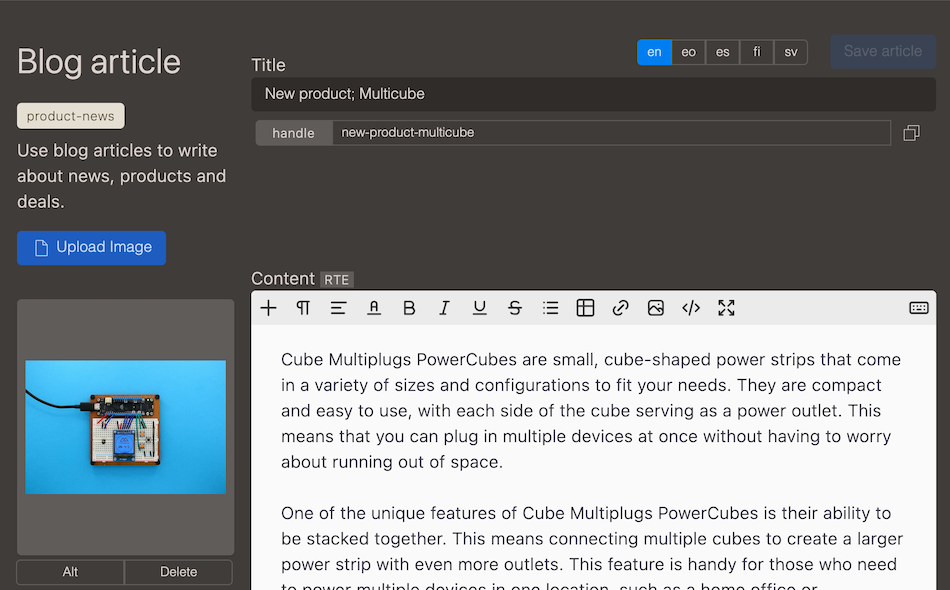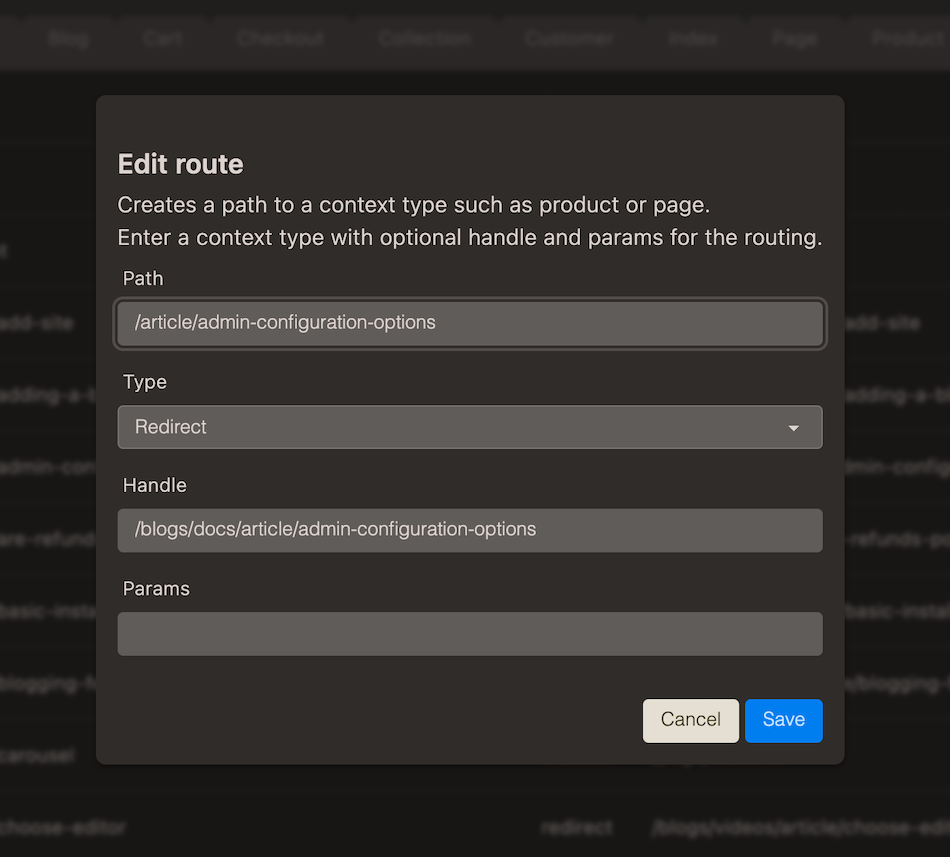Handles
https://<mydomain>/product/<my-descriptive-handle>

handle under Title is shown.
Handles are the last part of the URL and points to a specific resource they are intended to be descriptive and are built from the title of the created object.
When creating an object, such as a page, article, blog, product or collection, a descriptive handle based on the title is created at the same time. All handles to pages, articles, blogs, products and collections are modifiable in the admin for the object.
301-redirects
Under Routes in the bottom left menu it is possible to add 301-redirects and modify the routes.
301-redirect is a permanent redirect from an old URL path to a new one. Whenever changing a URL path it is important to add in a 301-redirect for redirecting traffic, such as coming from search engines, using the old URLs.
Adding in a 301-redirect

Press Create route and add a redirect with specifying the <old-path> under Path and the <new-path> under Handle
| Path | Type | Handle | Params |
|---|---|---|---|
<old-path> |
Redirect | <active-path> |
- |
Routes
Under Routes it is possible to modify the default routes.
Open Routes in the bottom left menu under Settings.
Page
The system has a default URL structure with /page/ in front of the page-handle
https://<mydomain>/page/<page-handle>
Removing /page/
To remove the /page/ part of the URL add a route for the handle of the type Page and specify the wanted path.
| Path | Type | Handle | Params |
|---|---|---|---|
<wanted-path> |
Page | <page-handle> |
- |
Blog
Default URL structure on all blog articles
https://<mydomain>/blogs/<blog-handle>/article/<article-handle>
Removing general slug
https://<mydomain>/<wanted-path>/article/<article-handle>
| Path | Type | Handle | Params |
|---|---|---|---|
<wanted-path> |
Blog | <blog-handle> |
- |
